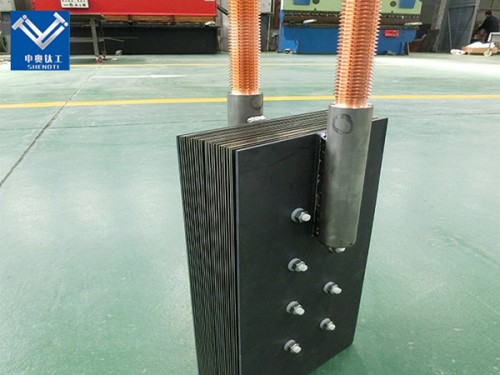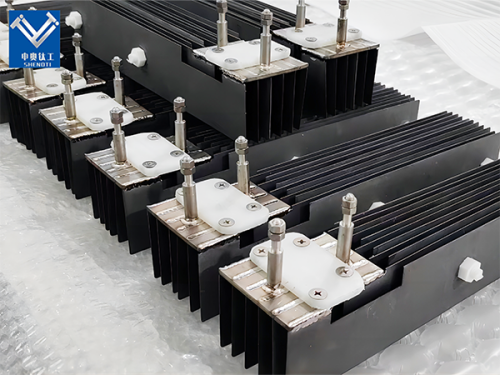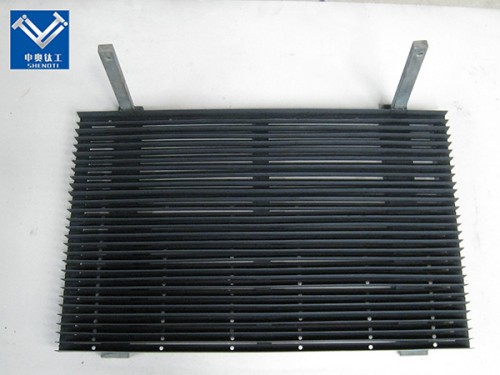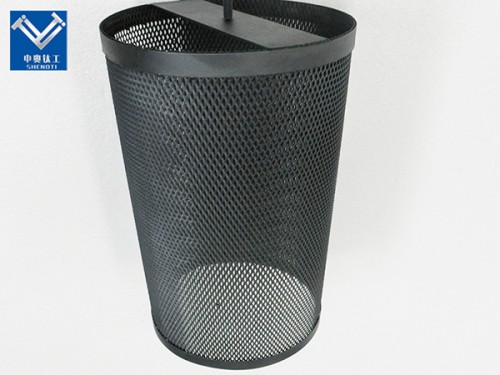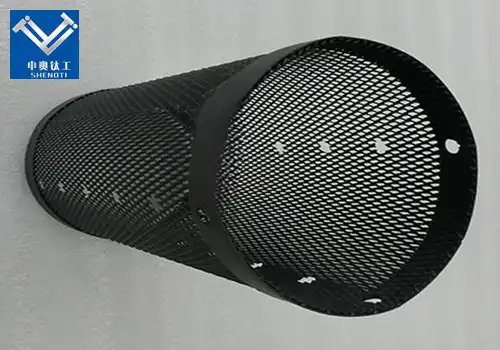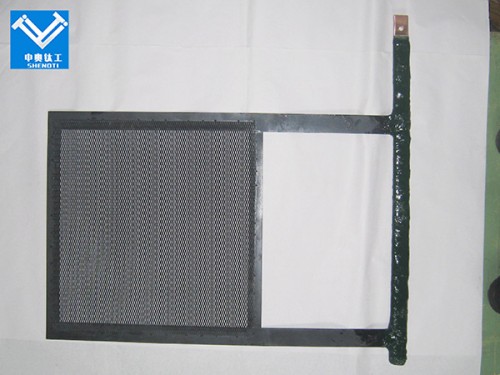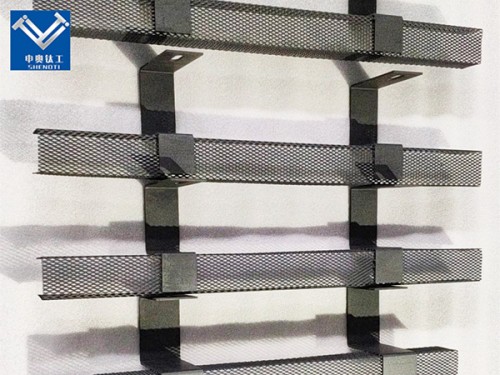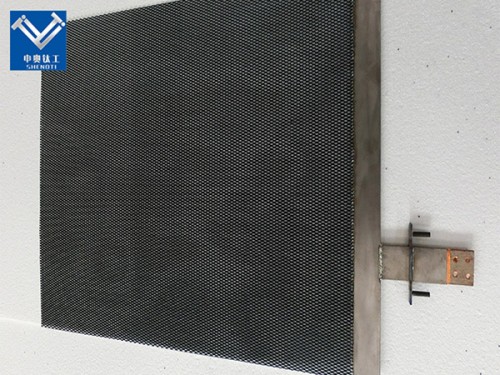
What Are Titanium Anodes for Wastewater Treatment?
2025-08-29 16:24:21
Wastewater management has become one of the most pressing challenges in industrial development. Traditional treatment methods often face limitations in efficiency, durability, and environmental impact. In this context, Titanium anodes for wastewater treatment have emerged as a groundbreaking technology, offering long service life, high electrochemical efficiency, and environmental sustainability.
By combining advanced coating technologies with the natural corrosion resistance of titanium, these anodes are now widely applied in electrochemical wastewater treatment systems. They are especially valuable in industries that demand high reliability, such as chemical processing, electroplating, mining, pharmaceuticals, and municipal water treatment plants.
What Are Titanium Anodes for Wastewater Treatment?
Titanium anodes for wastewater treatment are electrochemical electrodes made from high-purity titanium substrates coated with precious metal oxides such as ruthenium oxide (RuO₂), iridium oxide (IrO₂), platinum (Pt), or mixed metal oxide (MMO). These coatings provide excellent conductivity and catalytic activity for oxidation-reduction reactions in wastewater treatment.
Key Features Titanium Anodes for Wastewater Treatment
Corrosion Resistance: Titanium is naturally resistant to chemical attack, making it suitable for harsh wastewater environments.
Long Service Life: MMO-coated titanium anodes can operate for years without significant degradation.
High Oxygen Evolution Potential: Ensures efficient breakdown of organic pollutants.
Energy Efficiency: Requires lower power consumption compared to traditional electrodes.
Eco-Friendly: Generates fewer secondary pollutants, aligning with green treatment practices.
Manufacturing Process of Titanium Anodes for Wastewater Treatment
The performance of Titanium anodes for wastewater treatment largely depends on the precision of the manufacturing process.
1: Titanium Substrate Selection
High-grade titanium, usually ASTM B265 Grade 1 or Grade 2, is chosen for its mechanical strength and corrosion resistance.
The surface is checked for defects to ensure uniform coating adherence.
2: Surface Preparation
Titanium substrates undergo acid pickling, sandblasting, or mechanical polishing to remove oxides.
Proper surface roughness enhances coating adhesion.
3: Coating Application
Mixed Metal Oxides (MMO) or platinum group metals are applied using thermal decomposition or electrochemical deposition.
The coating thickness is carefully controlled to balance performance and cost.
4: Heat Treatment
Anodes are subjected to multiple heating cycles to strengthen the bond between titanium and the coating.
This improves durability and catalytic activity.
5: Quality Testing
Each titanium anode for wastewater treatment undergoes electrochemical performance testing.
Parameters such as voltage stability, coating uniformity, and expected service life are verified.
Technical Parameters of Titanium Anodes for Wastewater Treatment
When selecting titanium anodes, it is essential to consider the following specifications:
Base Material: ASTM B265 Grade 1 or Grade 2 titanium
Coating Types: RuO₂, IrO₂, Pt, or MMO combinations
Current Density Range: 100–1000 A/m²
Operating Temperature: Up to 80–100°C depending on coating
Service Life: 5–15 years depending on application
Shape and Form: Mesh, plate, rod, or tubular structure for various reactors
Industrial Applications of Titanium Anodes for Wastewater Treatment
1. Electrochemical Wastewater Treatment
The primary use of Titanium anodes for wastewater treatment is in electrochemical oxidation systems. By applying direct current, harmful organic pollutants and toxic chemicals are oxidized into harmless compounds such as CO₂ and water.
2. Electroplating Industry
Wastewater from electroplating plants often contains cyanide and heavy metals. Titanium anodes effectively treat such effluents, reducing pollution loads before discharge.
3. Textile and Dyeing Industry
Dye wastewater is highly colored and difficult to degrade. Titanium anodes break down azo dyes and persistent organic pollutants efficiently.
4. Pharmaceutical and Chemical Manufacturing
Industrial effluents containing complex organic compounds are treated using titanium anodes to achieve compliance with environmental standards.
5. Mining and Metallurgy
Wastewater from mining contains heavy metals such as arsenic and lead. Titanium anodes help in electrochemical precipitation and oxidation processes.
Success Stories with Titanium Anodes for Wastewater Treatment
1: Electroplating Wastewater Treatment in Southeast Asia
A large electroplating facility adopted Titanium anodes for wastewater treatment, reducing COD (Chemical Oxygen Demand) levels by over 80%. The system required minimal maintenance over five years, proving the long service life of MMO-coated titanium anodes.
2: Textile Dyeing Wastewater in India
A textile company integrated titanium anodes into its treatment plant. Within three months, the color removal rate exceeded 90%, and treated water was reused in production, saving operational costs.
3: Municipal Wastewater Pilot Project in Europe
Titanium anodes were tested in a municipal wastewater treatment system. The anodes successfully removed pharmaceuticals and endocrine-disrupting compounds, demonstrating potential for large-scale adoption.
Advantages of Titanium Anodes Over Conventional Electrodes
Longer Lifespan: Compared to graphite or lead dioxide electrodes, titanium anodes last significantly longer.
Stable Performance: Minimal voltage fluctuation during long-term operation.
Lower Operating Costs: Reduced maintenance and replacement frequency.
Environmental Safety: Unlike lead-based electrodes, titanium anodes do not release harmful substances.
Why Choose Our Titanium Anodes?
At Baoji City ShenAo Metal Materials Co., Ltd., we specialize in the production of high-performance Titanium anodes for wastewater treatment. With decades of expertise in titanium and non-ferrous metal processing, our products are trusted by industries worldwide.
Customizable Shapes: Mesh, plate, tubular, or rod types.
Tailored Coatings: MMO, platinum, or mixed formulations.
Strict Quality Control: Each anode undergoes rigorous performance testing.
Global Service Network: Technical support and after-sales services available internationally.
Titanium anodes for wastewater treatment represent a critical innovation in modern environmental engineering. By combining advanced materials with precision manufacturing, they deliver durability, efficiency, and sustainability in wastewater treatment applications.
From industrial electroplating plants to municipal water facilities, titanium anodes are helping industries meet strict environmental regulations while reducing operational costs. As technology advances, the role of titanium anodes will only grow stronger, making them an indispensable solution for a cleaner future.
For more information or product inquiries, please contact us at:
Baoji City Shenao Metal Materials Co., Ltd.
Tel: 18729731603
Email: zh@baojiti.com.cn
Website: https://shenaocladplate.com
YOU MAY LIKE











